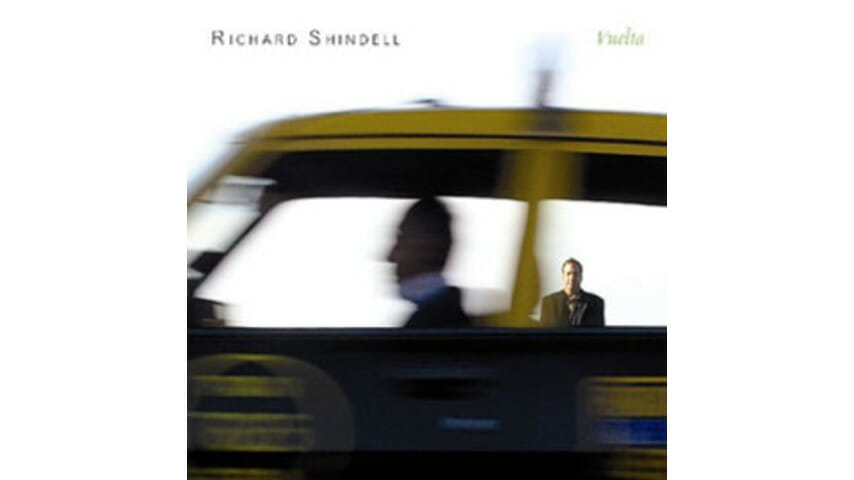
For a genre where storytelling and songcraft remain paramount, the implicit pressure on any folk songwriter—particularly one with the longevity of Richard Shindell—is to use the 70-odd minutes of an album to try and carry listeners off on a variety of journeys, both imaginative and emotional. The best usually manage to lead this tour of their mind’s eye while maintaining their own voice and perspective, and without lapsing into a haphazard exposition of so many generically pathos-laden vignettes and sketches. In the case of Vuelta, Shindell leads us best when he limits his palette to the darker and more visceral shades of story and evocation, something he does on much, but not all, of the album.
Vuelta starts with the strong and compelling “Fenario,” a wistful dirge of a warrior’s love left behind, thoughtfully followed by a sensitive-but-firm cover of Pete Seeger’s “Waist Deep in the Big Muddy.” Thematically, the two songs counterpoint each other seamlessly and, together, offer up a sort of humanist war-protest couplet that’s compelling heart-tug far exceeds that of mere sloganeering. The problem, however, is that rather than carrying on with the tone he’s achieved, Shindell proceeds to offer “The Island” and “Hazel’s House,” two pretty-but-clichéd musings—one about vacation and nice, sandy locales, and one about the joys of home. Again, the pairing is logical but, in this case, the songs collectively offer far less gravitas. In a sense it’s hard to argue with such lovely, essentially unobjectionable fare, but having shown us more riveting images of war and love deferred, Hazel’s apple pie and island breezes seem awfully trite and lightweight for lightweight’s sake.
Thankfully, the album’s third couplet re-attaches to the emotional density of the first as the story of the stranded illegal immigrant in “Che Guevara T-Shirt,” gives way to a Spanish ballad—one I’m frankly happier not to be able to translate, creating as it does, a sense of both the universality of his character’s sentiments, but also the occasional moments of isolation and miscomprehension flavoring his characters’ lives, particularly the one in the preceding song. The fourth couplet then offers a more general musing on freedom, accomplished by way of mirrored bird images—a pet set free, and a semi-domesticated free visitor to the narrator’s windowsill. Again, the imagery seems appropriated from the Great Folk Fake Book of Mundane Metaphors but, as before, his lulling voice and unobtrusive instrumentation ease the saccharine down your throat with relative ease. “The Last Fare of the Day,” presumably a musing on 9/11, is warm and comforting, dabbling vaguely in a country aesthetic with its steel-guitar swells, setting up the album’s spare closer “Gray Green,” its most abstract musing on the lines between life and death, sleep and consciousness.
Musically, Shindell’s performance is somewhere between soothing and over-soothing, as the relative homogeneity of tempo and tone renders the songs for the most part a continuous-but-utterly unchallenging listen. The tones are crisp, clean and often gorgeous, but essentially unvaried. Furthermore, given the album’s pan-Spanish themes, Shindell’s musical accompaniment is surprisingly insulated from any relevant musical influences of that kind—not a single Cuban horn or true flamenco guitar accent to be found anywhere. As a result, the songs are rendered more conventional and generic than their often watertight composition might suggest.
Elegant, elegiac and mildly repetitive, Richard Shindell’s newest effort is flawless, if occasionally featureless, folk.